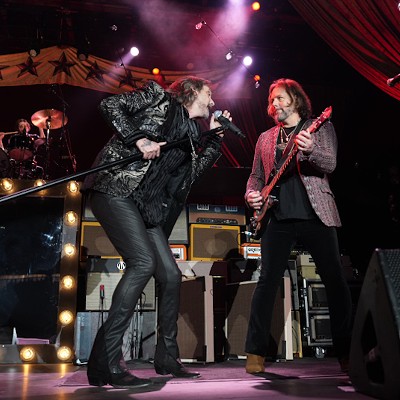Support Us
Houston's independent source of
local news and culture
account
- Welcome,
Insider - Login
- My Account
- My Newsletters
- Contribute
- Contact Us
- Sign out
[
{
"name": "Related Stories / Support Us Combo",
"component": "11591218",
"insertPoint": "4",
"requiredCountToDisplay": "4"
},{
"name": "Air - Billboard - Inline Content",
"component": "11591214",
"insertPoint": "2/3",
"requiredCountToDisplay": "7"
},{
"name": "R1 - Beta - Mobile Only",
"component": "12287027",
"insertPoint": "8",
"requiredCountToDisplay": "8"
},{
"name": "Air - MediumRectangle - Inline Content - Mobile Display Size 2",
"component": "11591215",
"insertPoint": "12",
"requiredCountToDisplay": "12"
},{
"name": "Air - MediumRectangle - Inline Content - Mobile Display Size 2",
"component": "11591215",
"insertPoint": "4th",
"startingPoint": "16",
"requiredCountToDisplay": "12"
}
,{
"name": "RevContent - In Article",
"component": "12527128",
"insertPoint": "3/5",
"requiredCountToDisplay": "5"
}
]
Sherwood Cryer, who co-founded legendary super-size Pasadena honky-tonk Gilley's and watched it rocket to worldwide fame in the wake of 1980's Urban Cowboy before a bitter falling out with his partner Mickey Gilley led to the club's demise, passed away last Thursday at his Houston-area home. He was 83, and the cause was natural causes, abc13.com reported.
Cryer, a native of the tiny East Texas town of Diboll, moved to Pasadena after World War II and worked as a welder for Shell before saving up enough money to buy a string of convenient stores, honky-tonks, beer joints and icehouses. In 1971, he spotted a young piano player named Mickey Gilley and offered to split the take of his club on Spencer Highway with Gilley if the musician would play there six nights a week. It was called Shelly's at the time, and Cryer was already bringing in some notable names.
"It was an open-air affair, and made big money," Cryer told the Austin Chronicle in 1999. "Hell, I had all the stars - Willie Nelson when he was still runnin' a three-piece band, Roy Acuff, George Jones. Used to get him for $250 a night. So it rocked along there for several years. I wasn't settin' the world on fire, but I was bringin' in country music."
Over Gilley's objection, Cryer rechristened the club Gilley's. The two made an arrangement: Cryer would handle all the business arrangements, and Gilley the music. As the club gathered a reputation, first locally and regionally, then nationally and worldwide after Aaron Latham's 1978 Esquire article "The Ballad of the Urban Cowboy and America's Search for True Grit" and Urban Cowboy, Cryer built a merchandising empire of Gilley's T-shirts, caps, belt buckles, women's underwear and even its own brand of beer.
And the always enterprising Cryer didn't stop there. At one point, he was harvesting the nightly deposits in the Gilley's urinals for resale to a medical research firm that was using them in the fight against cancer. At the time, a barrel of urine cost more than a barrel of oil.
Cryer, who also managed Gilley's and Johnny Lee's career during the 1970s, could be generous - buying Gilley a diamond ring every time he had a No. 1 record - but he often frightened and disturbed the musicians with his bare-knuckle business tactics. Gilley was present one day Cryer beat down a man who owed him money, the Press reported in 1997, and reported him to the police for disturbing the peace for good measure.
Lee got it even worse. Once, when Cryer - who wanted Gilley's to be a "family joint" - heard the singer rehearsing Jimmy Buffet's "Why Don't We Get Drunk and Screw?" after he had asked him not to, he took him into a corner and pistol-whipped him.
Gilley's didn't really begin to take off until after Cryer installed a mechanical bull for all the pipe-fitters and glass-cutters to work out some of their aggression somewhere besides each other. Gilley and most of the club's other performers hated it, but it was making too much money for Cryer to shut down and eventually became as synonymous with the club as John Travolta and Debra Winger two-stepping to Lee's "Lookin' for Love."
"A bunch of them entertainers raised hell because they wanted the bull shut down, but they never put it in their contracts," Cryer told us in 1999. "I think Johnny Cash did, but I just rubbed that out because, hell, that bull was popular!"
After the Urban Cowboy craze faded in the early '80s, Gilley's remained open but relations between Gilley and Cryer continued to deteriorate. Gilley thought Cryer was charging too much to see him at the door; Cryer countered by claiming Gilley was holding out on him. Things eventually wound up in court, where a jury ruled in Gilley's favor to the tune of $17 million in 1987. The club shut its doors soon after and burned to the ground in 1990, leaving little nostalgia.
"When I finally heard it burned down," Johnny Lee told the Austin Chronicle, "I was so pissed off at [Cryer] that I really didn't give a shit."
The settlement allowed Cryer to keep the businesses he owned before partnering with Gilley. We found him at one, G's Ice House in the shadow of the Deer Park Shell refinery, in September 1999 when researching our Gilley's story for the Austin Chronicle. He still made mechanical bulls in a room in the back, sending them all over the world to people who continued to be fascinated by the world they saw onscreen in Urban Cowboy. He was 74 then, or he said he was, and planning a reunion of Urban Cowboy characters for that November.
Cryer autographed a copy of late Houston Post and Chronicle music critic Bob Claypool's 1980 book, Saturday Night at Gilley's, this way: "From the man who put Pasadena, Texas, on the map, kept all the drunks drunker, and enjoyed every minute." But the bitterness still festered.
"[Gilley] convinced the damn jury that I was the boogerman in the deal," Cryer said, "and they took everything I had. I didn't have a pot to piss in or a window to throw it out whenever Gilley and his slick-tongued lawyers turned me loose."
[John Nova Lomax contributed to this report.]
KEEP THE HOUSTON PRESS FREE...
Since we started the Houston Press, it has been defined as the free, independent voice of Houston, and we'd like to keep it that way. With local media under siege, it's more important than ever for us to rally support behind funding our local journalism. You can help by participating in our "I Support" program, allowing us to keep offering readers access to our incisive coverage of local news, food and culture with no paywalls.
Chris Gray has been Music Editor for the Houston Press since 2008. He is the proud father of a Beatles-loving toddler named Oliver.
Contact:
Chris Gray
Trending Music
- Top 10 Butt-Rock Bands of All Time
- Beatles Book Drills Down on Two Summer of Love Sensations
- A Sweet Story About Phil Collins and the Ultimate Warrior (R.I.P.)
-
Sponsored Content From: [%sponsoredBy%]
[%title%]

Don't Miss Out
SIGN UP for the latest
Music
news, free stuff and more!
Become a member to support the independent voice of Houston
and help keep the future of the Houston Press FREE
Use of this website constitutes acceptance of our
terms of use,
our cookies policy, and our
privacy policy
The Houston Press may earn a portion of sales from products & services purchased through links on our site from our
affiliate partners.
©2024
Houston Press, LP. All rights reserved.





